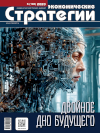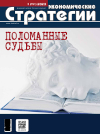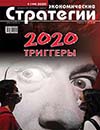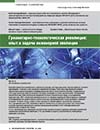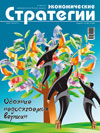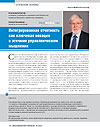Value Foundations of the Methodology for Compatibility of Society Paradigms
DOI: 10.33917/es-1.199.2025.102-109
The purpose of the study is to form the value foundations of the methodology for compatibility of the society paradigms and society subsystems. Mutually complementary types of value theories and dual understanding of values are analyzed. The article explores the common values of the society paradigms, including sustainable development, social justice; inclusiveness, equality and human rights protection. Necessary composition of aspects of the value foundations for methodology of compatibility of society paradigms is formed and a structural scheme of paradigms compatibility of society spheres is compiled.
References:
1. Morozov V.A. Metodologiya sovmestimosti paradigm obshchestva: filosofsko-psikhologicheskie i sistemotekhnicheskie osnovaniya [Methodology of compatibility for society paradigms: philosophical-psychological and system-technical foundations]. Menedzhment i biznes-administrirovanie. Moscow, ID “Ekonomicheskaya gazeta”, 2024, no 2, pp. 209–217.
2. D’yui Dzh. Obshchestvo i ego problem [Society and its problems]. Per. s angl. I.I. Myurberg, A.B. Tolstova, E.N. Kosilovoy. Moscow, Ideya-Press, 2002, 160 p.
3. Sheler M. Resentiment v strukture moraley [Resentment in the morals structure]. Per. s nem. A.N. Malinkina. Saint Petersburg, Nauka, 1999, 282 p.
4. Vindel’band V. Istoriya filosofii [History of philosophy]. Per. s nem. A.I. Vvedenskogo. Moscow, KANON-press, 1998, 548 p.
5. Stepin V.S. Teoreticheskoe znanie: struktura, istoricheskaya evolyutsiya [Theoretical knowledge: structure, historical evolution]. Moscow, Progress-Traditsiya, 2000, 743 p.
6. Salas S.D. Moral’ XXI veka [Morality of the 21st century]. Moscow, Kodeks, 2013, 483 p.
7. Riker P. Konflikt interpretatsiy: ocherki o germenevtike [Conflict of Interpretations: Essays on Hermeneutics]. Moscow, Akademicheskiy proekt, 2008, 695 p.
8. Lebedeva N.M., Tatarko A.N. Tsennosti kul’tury i razvitie obshchestva [Cultural values and development of societ y]. Moscow, ID GVShE, 2007, 528 p.
9. Anopchenko T.Yu., Savon D.Yu. Ustoychivoe razvitie: opyt, problemy, perspektivy [Sustainable development: experience, challenges, prospects]. Moscow, Institut ustoychivogo razvitiya Obshchestvennoy palaty Rossiyskoy Federatsii, Tsentr ekologicheskoy politiki Rossii, 2011, p. 120.
10. Morozov V.A. Dukhovnaya ekonomika i sovmestimost’ obshchestva. Teoriya sovmestimosti [Spiritual economy and compatibility of society. Compatibility theory]. Moscow, Dashkov i K°, 2021, 576 p.









